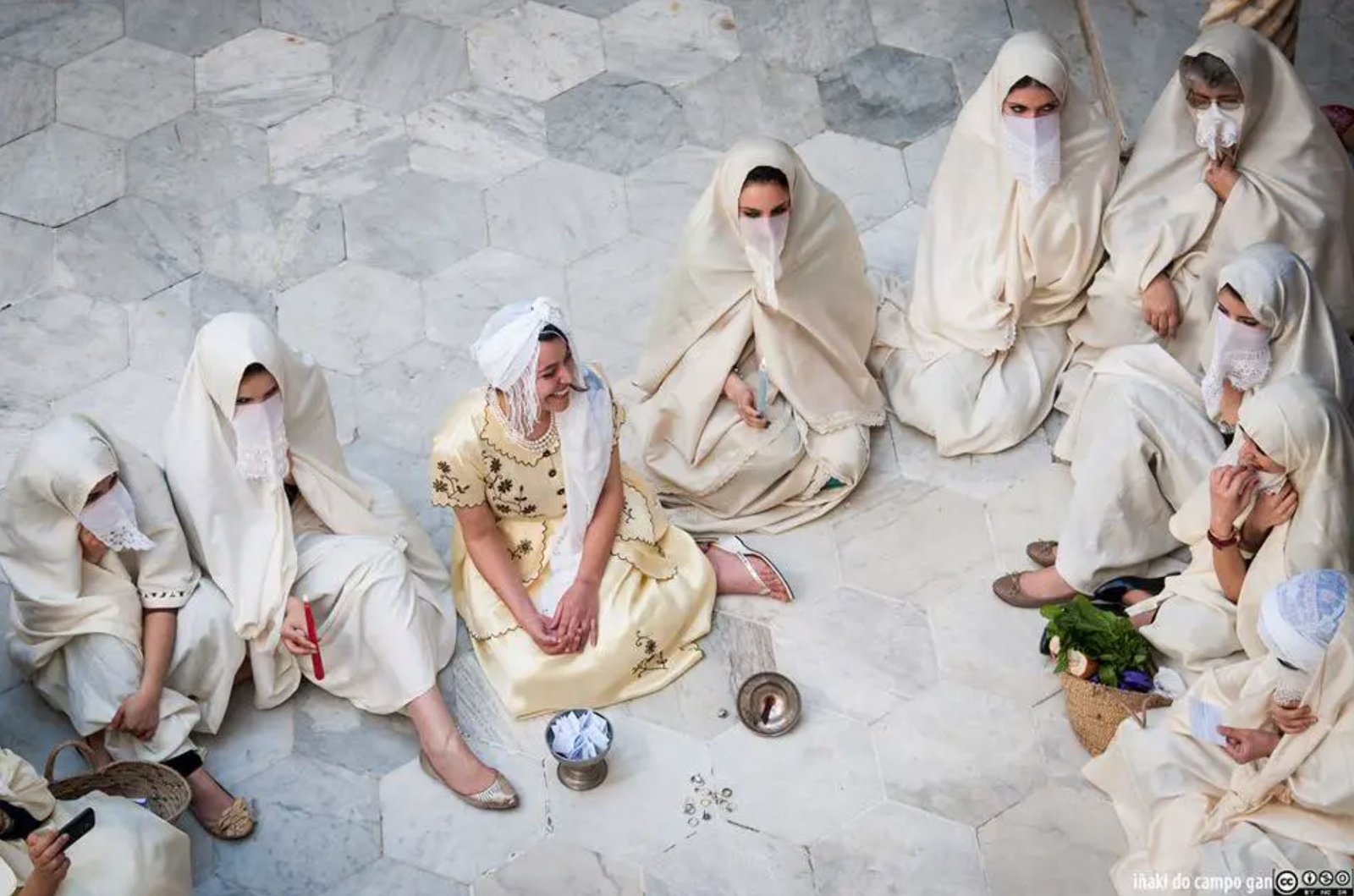A month of sharing and spirituality, Ramadan is an opportunity for Algerian households to indulge in many traditions. Among these, the game of Bouqala occupies a privileged place with women from the cities of Algiers, Blida, Cherchell, Tlemcen or even Constantine and Ghardaïa.
The term “Bouqala” or “Aliwane” in Mozabite first refers to a clay vase, but also to short poems, sometimes improvised, recited by women gathered in the terraces of the Kasbahs or in the patios, after dark. of the night. During this game which mobilizes an earthen vase (Bouqala), handles and natural perfumes, fumigation with a Kanoun is carried out to ward off evil spirits and purify the vase. The latter is then filled with water and covered with a scarf while an invocation is recited.
The game can begin: the participants place personal silver objects such as rings or bracelets in the vase. They tie a piece of fabric thinking of a loved one while a poem is recited, then an object is drawn from the vase. The owner of the object is the recipient of the omen contained in the short poem, often evoking the themes of love, death, separation or unacknowledged desires. During several rounds, the Bouaqal (plural of Bouqala) can indeed carry good or bad omens and are interpreted by the participants.
“The ritual of the bouqala is a traditional game of divination. Women gather around an officiant, often an old woman, and each places a jewel in a clay container. The celebrant recites a poem, then a young girl takes one of the jewels at random. The one to whom it belongs must find in the recited poem what can enlighten her life, her loves, announce her departures, joys or misfortunes. – Extract from the book La Bouqala by Mohamed Kacimi and Rachid Koraichi
Photo: iñaki do Campo Gan – Bouqala with artist Souad Douibi
A poetic and oral tradition, however, the Bouqala is not just a pastime that punctuates the nights of Ramadan. It represents an “urban social fact” where women have the opportunity to demonstrate poetic creativity. It is also a heritage, mobilizing the derija, which notably served to convey messages of resistance during colonization. According to political scientist Karima Ramdani, divinatory rituals would then serve women to “take back control of their destiny, to free the future from what today disfigures it”.
He came to me with his green thumb and offered me a hundred pearls.
Bad times took hold of him, he betrayed me by leaving me sterile.
But thank God, the Fatherland appealed to him: he went in search of freedom.
He came to me with his green thumb. He appeared to me in a dream.
He posed on my mourning clothes, roses and jasmine.

Thus, during the 1950s, many poems recited during the Bouqala game explored the themes of freedom or the absence of a loved one who had gone to the front. The game is marked by the country’s history, insofar as the personal, political and social spheres were inseparable at the time.
In the aftermath of independence, interest in the Bouqala did not wane. State programs – including those produced by the writer and columnist Kaddour M’hamsadji – give it a national echo and invite the audience to share poems while consolidating its status as poetry belonging to the popular heritage of the country. Although the practice of Bouqala no longer relies on its divinatory aspect, the game is today one of the symbols of female oral poetry in the country. During this sacred month, the Bouqala constitutes a cultural wealth to be revisited and safeguarded for the next generations.
Illustration : Rachid Koraichi – La Bouqala
Translated from Casbah Post






